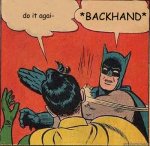Sword of Spirit
Legend
There is a 5e rule that says to assume that a task succeeds (if it's not impossible for you) if you aren't under time constraints and there is no meaningful consequence for failure. Basically 3e's 'take 20' in less codified terms.
Where is it? I can't seem to find it in the Basic Rules/PHB or my DMG (which I can't do a text search on, due to it not being digital).
I'm almost wondering if it was in the Playtest and didn't make it to publication, but I don't think that's right.
Where is it? I can't seem to find it in the Basic Rules/PHB or my DMG (which I can't do a text search on, due to it not being digital).
I'm almost wondering if it was in the Playtest and didn't make it to publication, but I don't think that's right.

